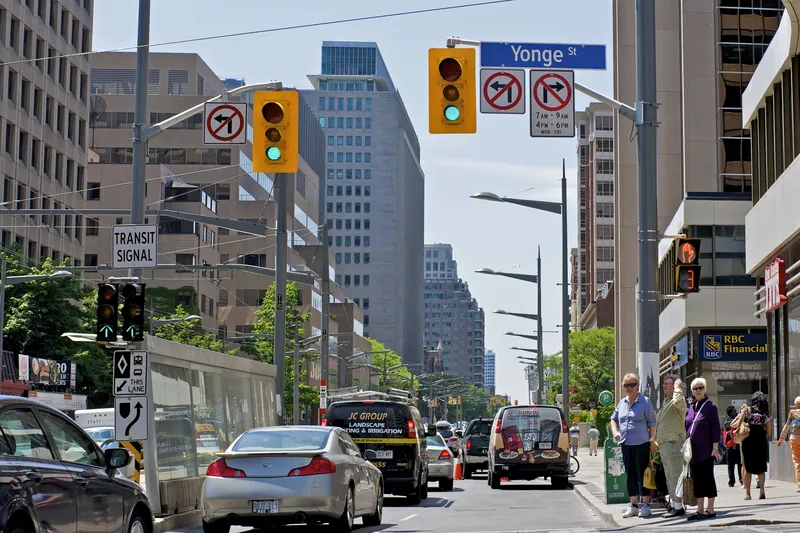According to the Chartered Institute of Logistics and Transport (CILT UK) the decision by Liverpool’s Mayor and council to suspend all of the city’s bus lanes in a nine month trial was rushed through and based on evidence that was flawed and suffered from a severe data deficit. Furthermore, it could even deter other local authorities around Britain from introducing measures that promote public transport to ease urban traffic congestion.
The Institute believes that the evidence used by the Mayor and Coun
March 14, 2014
Read time: 3 mins
According to the 6500 Chartered Institute of Logistics and Transport (CILT UK) the decision by Liverpool’s Mayor and council to suspend all of the city’s bus lanes in a nine month trial was rushed through and based on evidence that was flawed and suffered from a severe data deficit. Furthermore, it could even deter other local authorities around Britain from introducing measures that promote public transport to ease urban traffic congestion.
The Institute believes that the evidence used by the Mayor and Council to make its decision in 2013 was deficient in both quantitative and qualitative analysis and data which will make proper evaluation of the impact of the bus lane suspension impossible.
The Institute believes that this issue is not just important for Liverpool but has wider national implications, particularly in ensuring that local transport policies do not: Contravene national policies for the management of traffic congestion; Prejudice the ability of bus operators to run services efficiently and effectively; and, Risk setting unfortunate precedents for other towns and cities.
Austin Birks, Chairman of the Institute’s Bus and Coach Forum said the decision to suspend bus lanes appears rushed and is based on flimsy ‘evidence’ that is mainly predicated on a discredited approach (i.e. reviewing movements by vehicle rather than person). In a city with lower than average car ownership but also growing tourism, permanently removing all bus lanes has the potential to damage the city economically and socially. He urged the Mayor and city council to terminate what he said appears to be an ill-considered experiment.
Nationally, bus lanes and other pro-bus measures are supported across the political spectrum and by respected transport planning experts as ways of enhancing urban transport and local connectivity and reducing emissions. This includes Merseytravel, the local Passenger Transport Executive, whose press statement accepted that the trial may identify issues with some bus lanes in Liverpool, but states: “Merseytravel continues to support the principle of bus lanes; they can help improve journey times and the reliability of buses and can make the bus network more attractive”.
This view is also reinforced by others. The Parliamentary Transport Select Committee in its 2011 Report “Out of the Jam: Reducing congestion on our roads” and the Institute for Transport Studies at the2153 University of Leeds in its 2012 Report, “Buses and Economic Growth”, both endorse the role of the bus and pro-bus measures to help people access jobs, education, training and leisure.
In addition, bus services in Liverpool are rated highly by local users in independent surveys. Arguably, the additional congestion that the city’s Mayor attributes to bus lanes may actually be due to successful investment including Liverpool One and growth in the city, construction of which has led to road closures and diversions.
The Institute believes that the evidence used by the Mayor and Council to make its decision in 2013 was deficient in both quantitative and qualitative analysis and data which will make proper evaluation of the impact of the bus lane suspension impossible.
The Institute believes that this issue is not just important for Liverpool but has wider national implications, particularly in ensuring that local transport policies do not: Contravene national policies for the management of traffic congestion; Prejudice the ability of bus operators to run services efficiently and effectively; and, Risk setting unfortunate precedents for other towns and cities.
Austin Birks, Chairman of the Institute’s Bus and Coach Forum said the decision to suspend bus lanes appears rushed and is based on flimsy ‘evidence’ that is mainly predicated on a discredited approach (i.e. reviewing movements by vehicle rather than person). In a city with lower than average car ownership but also growing tourism, permanently removing all bus lanes has the potential to damage the city economically and socially. He urged the Mayor and city council to terminate what he said appears to be an ill-considered experiment.
Nationally, bus lanes and other pro-bus measures are supported across the political spectrum and by respected transport planning experts as ways of enhancing urban transport and local connectivity and reducing emissions. This includes Merseytravel, the local Passenger Transport Executive, whose press statement accepted that the trial may identify issues with some bus lanes in Liverpool, but states: “Merseytravel continues to support the principle of bus lanes; they can help improve journey times and the reliability of buses and can make the bus network more attractive”.
This view is also reinforced by others. The Parliamentary Transport Select Committee in its 2011 Report “Out of the Jam: Reducing congestion on our roads” and the Institute for Transport Studies at the
In addition, bus services in Liverpool are rated highly by local users in independent surveys. Arguably, the additional congestion that the city’s Mayor attributes to bus lanes may actually be due to successful investment including Liverpool One and growth in the city, construction of which has led to road closures and diversions.








